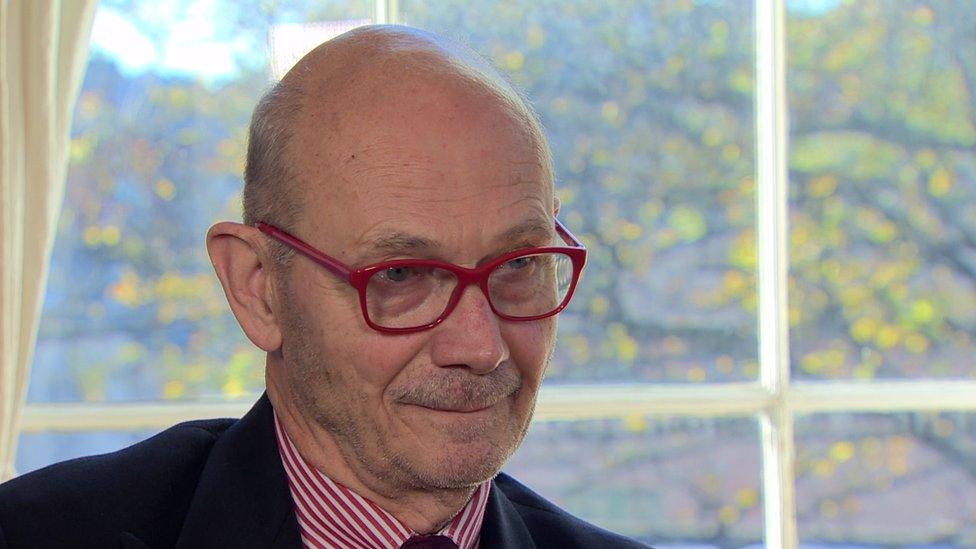Davis stands firm on Irish border issue
- Published
- comments
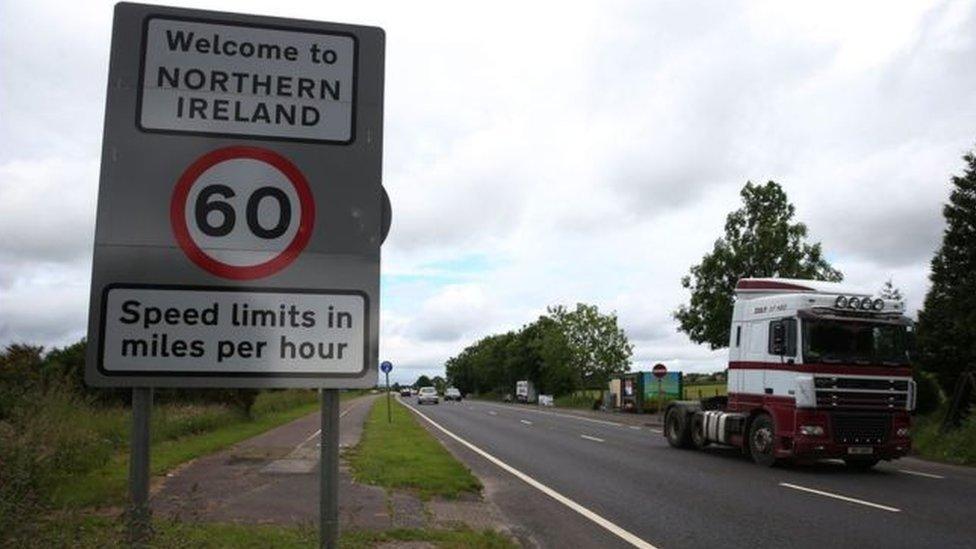
The future operation of the Irish border is one of the most sensitive Brexit issues
There were "frank discussions" about the Irish border in the latest round of Brexit talks, David Davis has said.
The Brexit Secretary was speaking in Brussels after a meeting with chief EU negotiator Michel Barnier.
Mr Davis said any solution for the border could not be at the expense of the constitutional integrity of the UK.
The EU tabled a paper which suggested Northern Ireland will have to continue to follow many EU rules after Brexit if a hard border is to be avoided.
The paper hinted that Northern Ireland may need to stay in the EU customs union if there are to be no checks at the border.
That is something which the Conservatives and DUP have said they cannot accept as it would effectively create a border between Northern Ireland and the rest of the UK.
Irish position accepted?
Britain and the EU say they are committed to ensuring Brexit does not undermine the Good Friday agreement.
Neither want Brexit to lead to the emergence of a hard border with the Republic of Ireland.
"Let me be clear, we cannot have anything resulting in a new border being set up with in the UK," said Mr Davis after the sixth round of UK-EU talks on citizens' rights, the Irish border, and the UK's "divorce bill".
"We remain firmly committed to avoiding any physical infrastructure.
"We respect the EU desires, but they cannot come at the constitutional integrity of the United Kingdom."
Mr Davis said the EU and UK teams had drafted joint positions on the common travel area, as well as joint principles and commitments for the second phase of talks.
The EU leaked paper stops short of saying a hard border can only be avoided by the UK or Northern Ireland staying in the single market or customs union.
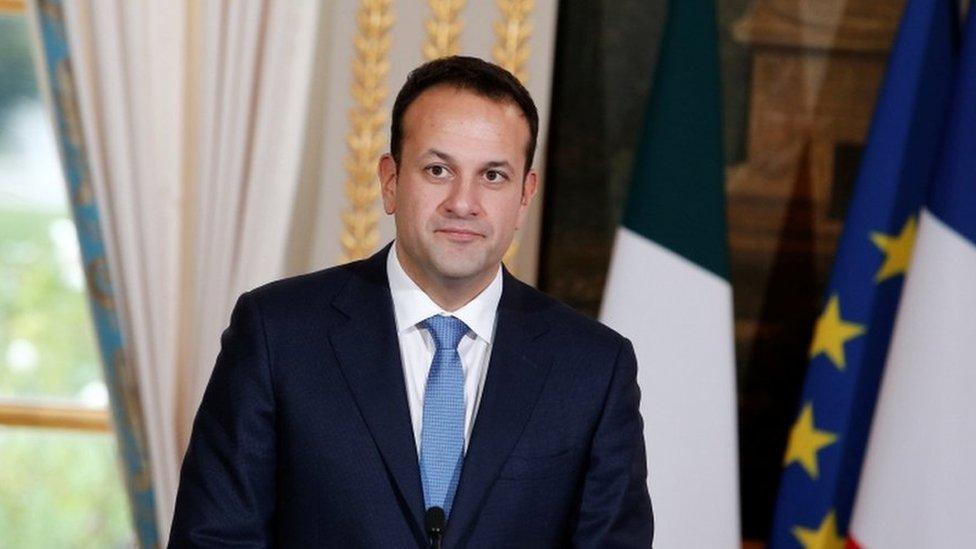
Taoiseach Leo Varadkar was attending the British-Irish Council in Jersey
However, it brings the commission closer to the European Parliament position which "presumes" that the UK or Northern Ireland will have to stay in the internal market and customs union.
It is also the clearest indication that the commission has accepted the Irish position on Brexit and the border issue.
Irish Prime Minister Leo Varadkar has said the only way of avoiding a hard border in Ireland after Brexit is for the whole of the UK, or Northern Ireland, to follow the rules of the customs union and single market.
Speaking at a meeting of the British-Irish Council in Jersey, Mr Varadkar said his proposal would not mean the UK or Northern Ireland had to be members of the customs union and single market, but "it would mean continuing to apply the rules".
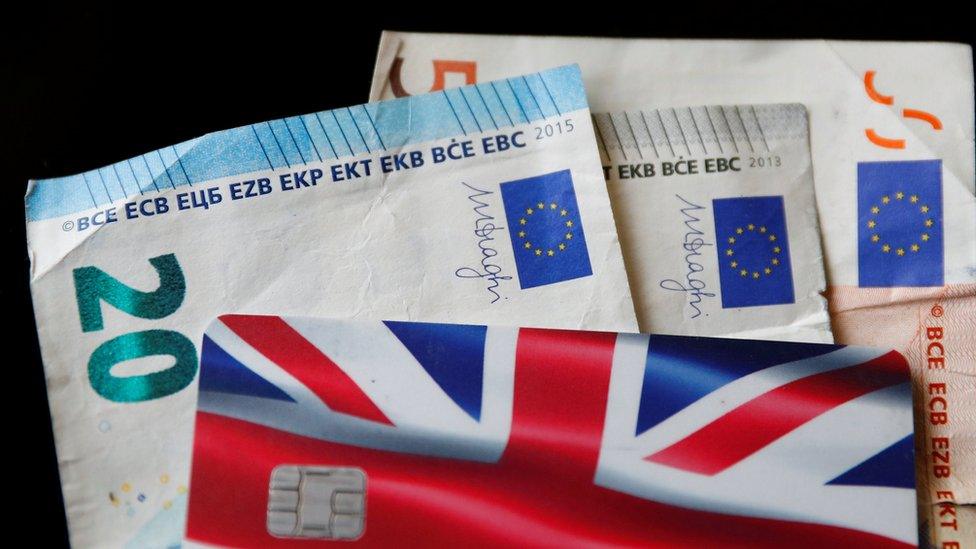
EU chief negotiator Michel Barnier has given the UK two weeks to clarify what it will pay to leave the EU
DUP Parliamentary leader and North Belfast MP Nigel Dodds rejected the suggestion that a hard border can only be avoided if the UK or Northern Ireland continue to abide by the rules of the single market and customs union after Brexit.
He said the paper shows the EU is unwilling to engage in negotiations on the border issue in a "meaningful fashion".
"Northern Ireland will not be separated from the rest of the UK as a result of Brexit," he said.
"Brussels must realise this and accept that progress will not be achieved through bully-boy tactics."
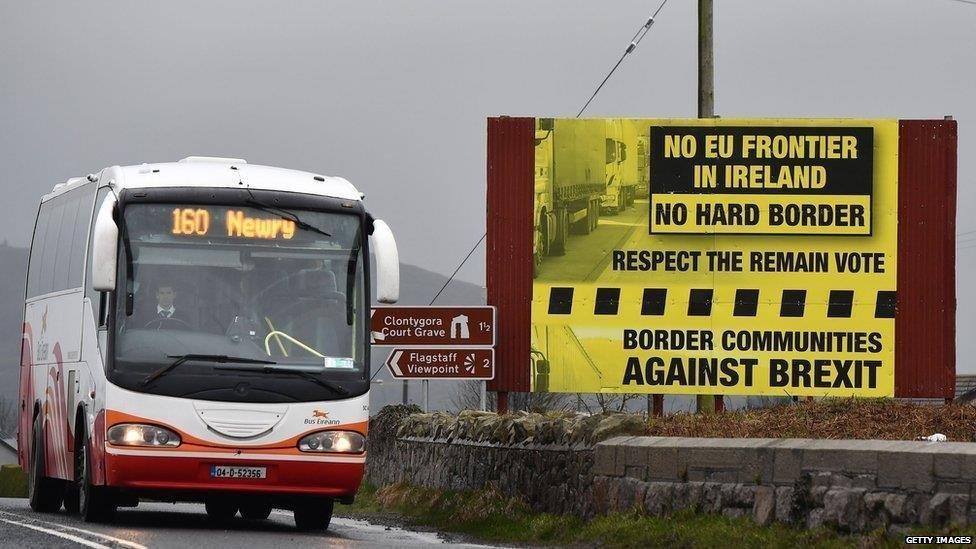
The DUP's Nigel Dodds said Brussels must accept progress will not be achieved through bully-boy tactics
Meanwhile, Irish Foreign Affairs Minister Simon Coveney said talk of individual countries vetoing a move to the next stage of Brexit negotiations is "unhelpful", but progress still had to be made on the border issue.
"There is a way to go between the two negotiating teams to be able to provide credible answers and sufficient progress in the context of the Irish border before we can move on to Phase Two," he told Irish state broadcaster, RTE.
Bertie Ahern tells BBC Newsnight a hard border would be a "huge setback" for the peace process
Former Irish Taoiseach and Good Friday Agreement signatory Bertie Ahern told BBC Newsnight that a hard border would be a "huge setback" for the peace process and that a physical border across the island of Ireland would give a "huge incentive" to those that want to cause mischief.
- Published10 November 2017
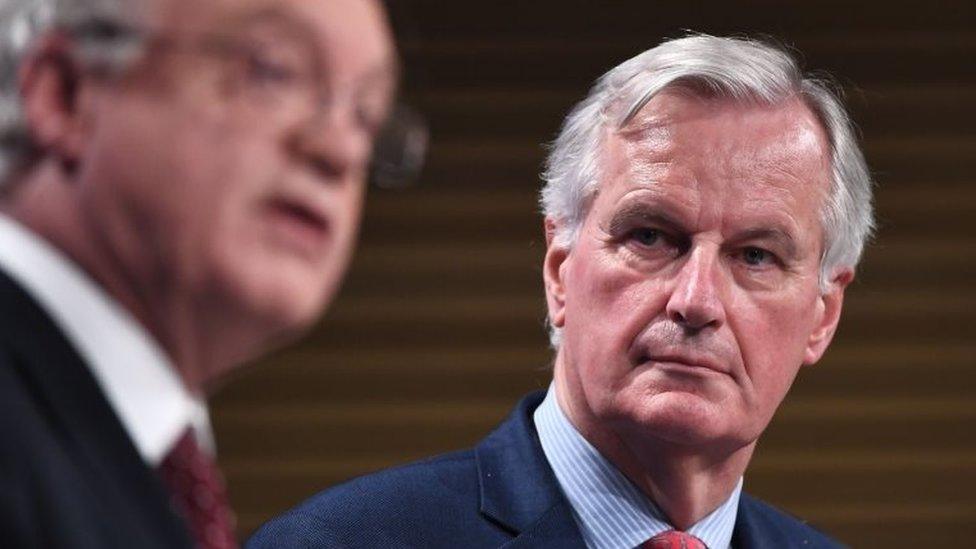
- Published6 November 2017
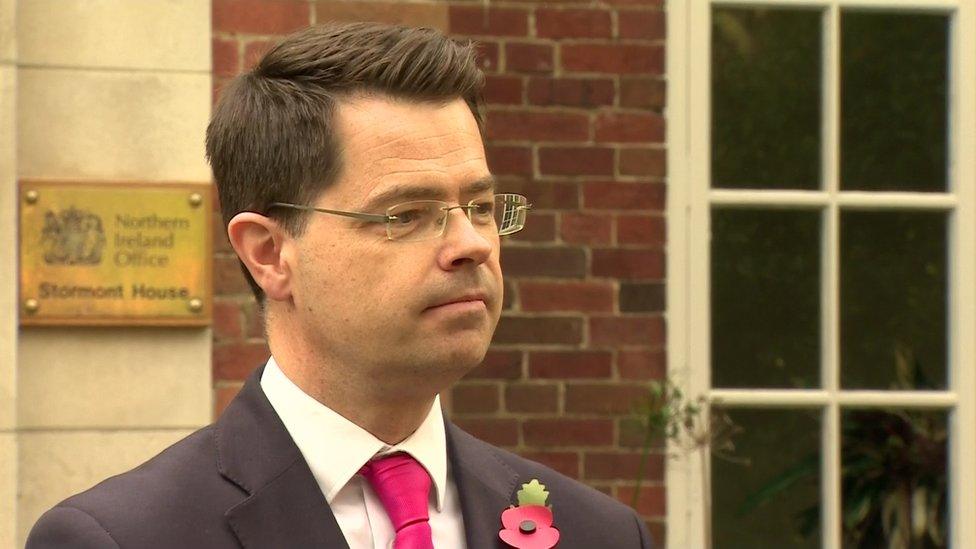
- Published27 October 2017
